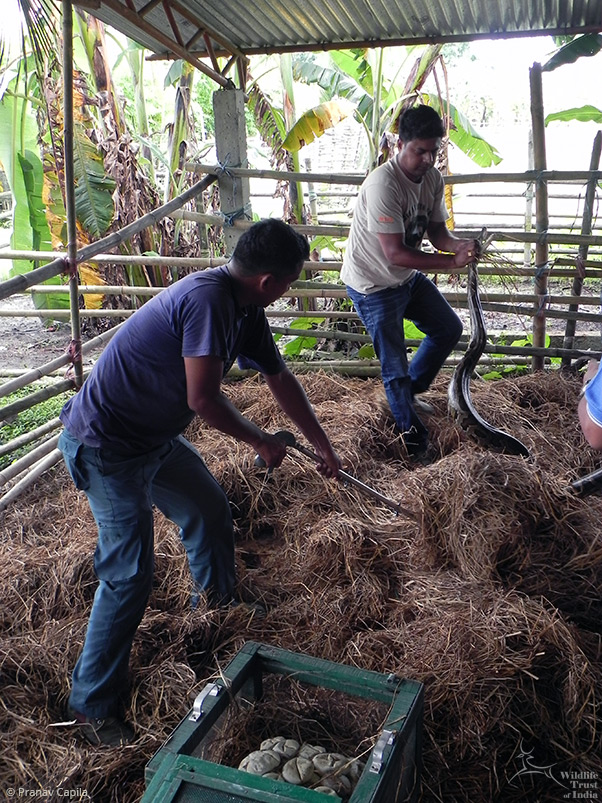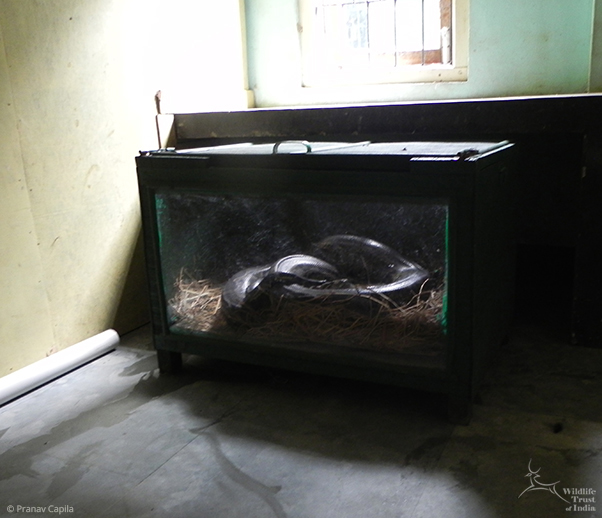Jorhat, Assam, June 24, 2016: The Mobile Veterinary Service (MVS) unit of IFAW-WTI’s Centre for Wildlife Rehabilitation and Conservation (CWRC) rescued a female Burmese python and its clutch of eggs from Kokilamukh in the Jorhat district of Assam this morning.
Responding to an emergency call from the forest department, the MVS team comprised of veterinarian Dr Samshul Ali and animal keeper Raju Kutum arrived at the Assam Bangiya Saraswat Math (aka Shanti Ashram), located on the banks of the Brahmaputra River, with forest officials from Jorhat. The ashram’s management informed them that the snake (later identified as a Burmese python) was found coiled around its eggs in the corner of a shed used to store cattle feed. The nest had been uncovered the previous evening as a pile of hay was moved to one side. Pythons are among a select few types of snakes that are capable of generating body heat to incubate their eggs, a difficult feat for cold-blooded reptiles. Burmese pythons do this by rapidly constricting and releasing their muscles in a form of ‘shivering’.

Dr Samshul Ali (top) and Raju Kutum rescue the Burmese python. The eggs, already in a crate, can be seen in the foreground
A large crowd had gathered by the time the MVS team reached the spot and the python, no longer visible, was thought to have abandoned its nest. One of the eggs had also been broken open and the viable hatchling, about 10 inches long, killed — sources on the scene said by a local fisherman. The Burmese python, it must be noted, is protected under Schedule I of the Wild Life (Protection) Act, 1972.
Upon removing some of the hay in the area around the nest, however, the female python was discovered nearby. The situation demanded that both the eggs and the python be transported to CWRC for them to have any chance of survival. “One of the eggs had already been smashed and the spot had become something of a public attraction. The nest would not have been left undisturbed”, Dr Ali said.
When the MVS team returned to CWRC Dr Ali and lead veterinarian Dr Panjit Basumatary supervised the ideal enrichment of a glass-sided box in which the female python could incubate her clutch of eggs. The box has been positioned in a partitioned room in the Small Animal Nursery. Since the eggs are at an advanced stage of viability, just about five to ten days short of maturity, it is hoped that at least some of them will hatch successfully.

The python, coiled around her eggs, in the Small Animal Nursery at CWRC
Update, June 25: Dr Samshul Ali reports that the python has once again coiled around her eggs and is brooding.